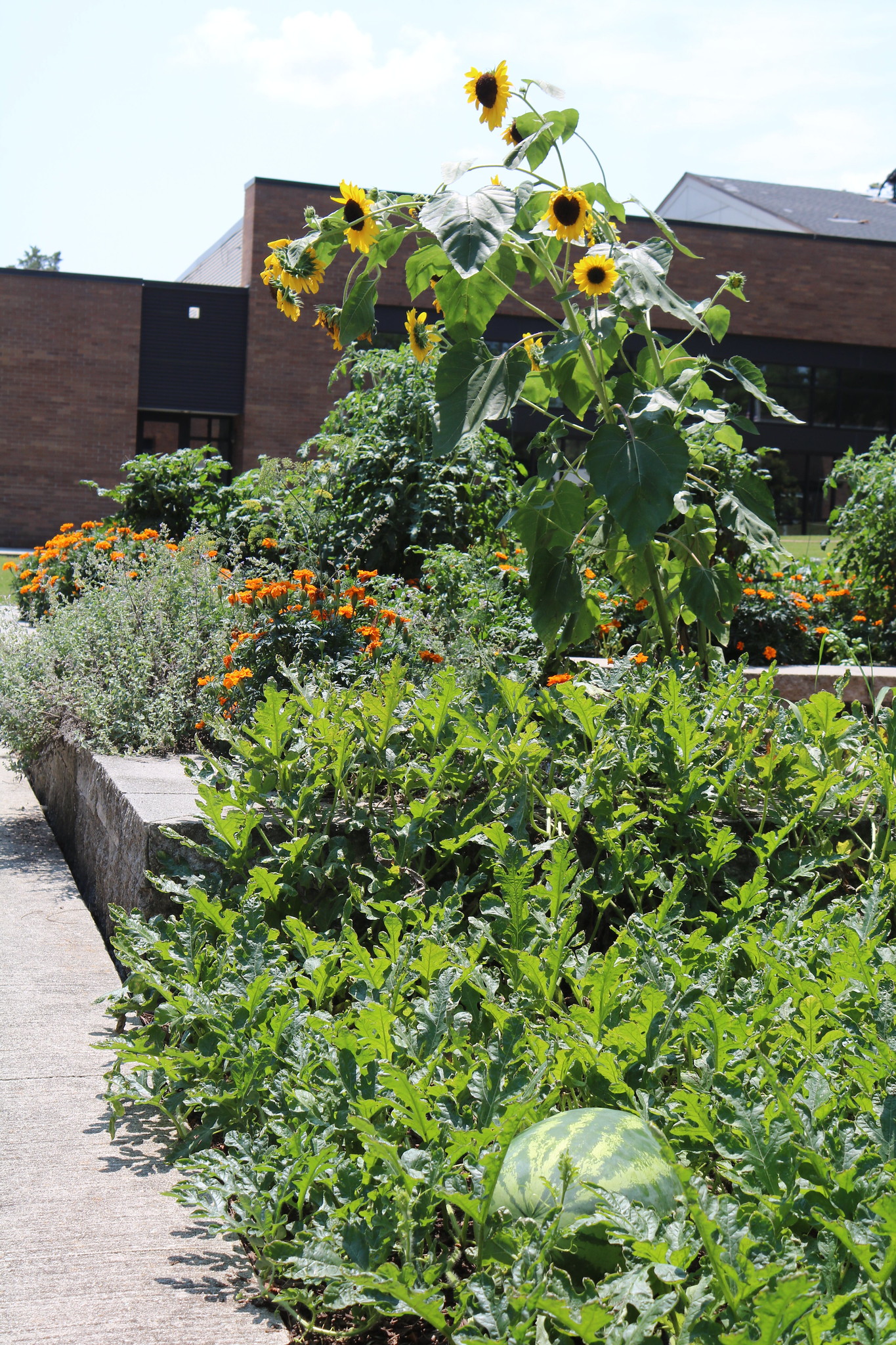Sustainability. We come across the word all the time: we see it on coffee cups, hear it in commercials, and study it in our classrooms. But what does sustainability really mean?
The answer to that question is actually a lot more complicated than one might initially think. Merriam Webster defines sustainability as “of, relating to, or being a method of harvesting or using a resource so that the resource is not depleted or permanently damaged.” More specifically, sustainability in the 21st century is generally used in an environmental context. Being sustainable ensures that we will be able to continue living and using Earth’s resources in the future. However, these dictionary definitions do not even begin to scratch the surface of sustainability in the modern world. The main reason sustainability is so difficult to explain is because it is intangible. It is not something you own or buy, and it is not something that you ever stop trying to achieve. It is a continuous goal that everyone must keep working towards if we want to continue living on Earth. Sustainability is like the light at the end of the tunnel, only the tunnel never ends. Delving further into its true meaning, the easiest way to explain sustainability’s many different facets is through scales: personal, local, national, and global.
Sustainability on a personal level is exactly what it sounds like: it is how sustainable you are as an individual. Your sustainability is determined by your actions. For example, do you recycle? Do you compost? Do you ride a bike instead of a car? Of course, these are only a few examples of ways to be individually sustainable. That is not to say people who do these things are superior. Even if you do all of the ‘right’ sustainable practices, our world still has a major environmental problem. For this reason, some activists believe that personal sustainability is pointless. However, as Jason Mark, editor of Earth Island Journal explains in 2019, individual sustainability is essential to solving our environmental crises. He finds that the problem with a lot of extreme viewpoints is that they put “personal action and collective action in opposition to each other.” These two things are not mutually exclusive. That is why you, as an individual, making an effort to improve personal sustainability matters.
Local sustainability widens to include more individuals than just you. As members of the Durham Academy community, that generally means the city of Durham and possibly some of its surrounding areas. Fortunately, Durham is a city in which several sustainable movements already exist. The City of Durham recently outlined their sustainability initiatives, which include installing solar arrays, electric vehicle charging stations, and LED lighting in all city buildings. They also partner with organizations such as Keeping Durham Beautiful and Duke Energy to implement these sustainable practices. Additionally, A Green New Deal for Durham is an on-the-rise movement that quickly gained popularity for its efforts to establish sustainability. The Green New Deal, commonly heard in national politics, is a proposal for addressing climate change. On the local level, A Green New Deal for Durham defines itself as a progressive “coalition of neighbors, community advocates, and nonprofit organizations, coming together to reimagine a greener and more sustainable Durham.” Instead of waiting for the Green New Deal to pass at the federal level, this local movement believes they can—and should—do their part to make our city more sustainable. Examples of ways the Durham Green New Deal for Durham pursues this goal are restoring wetlands, establishing a network of green spaces, and building a circular economy.
Nationally, sustainability is at the heart of so many discussions, especially political ones. It is almost guaranteed to be mentioned in presidential debates, and there are multiple proposals and movements surrounding sustainability. An example of a political proposal is the Green New Deal, which, as mentioned earlier, is essentially a climate change proposal that has become widely associated with liberal policies. The Sunrise Movement is a widely popular climate revolution group that supports the Green New Deal, believing that it absolutely must be passed. The organization currently has several campaigns in the works, including ones about public housing and guaranteeing good jobs.
Like the Sunrise Movement, youth-led climate organizations are growing all over the world. On the global scale, the Greta Thunberg Foundation has already inspired millions and contributed generous donations to places like the World Health Organization. The namesake of the foundation, Greta Thunberg, is currently a seventeen year old girl from Sweden who ignited a movement for change. When she was just fifteen, Greta refused to attend school for weeks and instead sat outside the Swedish Parliament every day demanding action. She gained fame through social media outlets before soon making global headlines. Though Greta’s movement is just one example of sustainability on a global scale, it is one that especially resonates with high schoolers like ourselves. The excuse of being too young to inspire change is undeniably proven wrong by Greta. Her bravery and catalytic actions serve to inspire us all to redefine sustainability in our own way. With this in mind, we challenge you to think of what sustainability means to you individually. If the change is as little as thinking twice before throwing away a plastic water bottle, then this article will have served its purpose. Even the most miniscule of changes are vital because ultimately, nothing can be accomplished without an individual action, regardless of how small it seems on a global, national, or local scale.
Join DA Sustainability Committee: 23patel@da.org, 23dharmapurikar@da.org, tina.bessias@da.org
